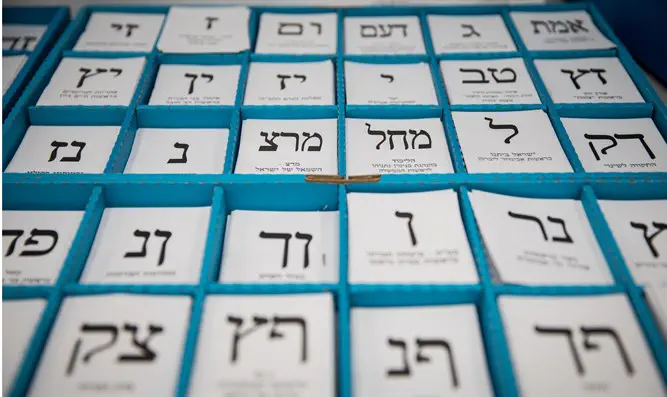

Photo: Hadas Porush, Flash 90
In the Knesset, MK Israel Eichler’s bill raises the blocking percentage to 15 percent.
We spoke with Prof. Asher Cohen of the Department of Political Science at Bar Ilan University about the expected consequences of the move, and he is not excited about lowering the blocking percentage even up to one seat.
“Let’s go back to ’49 and everyone who comes to the mandate will enter,” says Prof. Cohen Hamlin about the fact that “the political debate in Israel always stems from political interests and does not ask what it does to the system. The increase from one percent to ’92, if we look at the protocols The cases in which the initiator fell into the block of the blocking percentage. Resurrection representatives had three seats, Homeland and the junction had two seats, they said we would increase the blocking percentage to one and a half percent and then Homeland would unite with us and the junction would have no choice “It was the percentage of the block that went up and the only ‘resurrection’ that fell into the pit of the gap, it had more than one percent but not one and a half percent and the result is Oslo. Without this blow, Oslo would not have had 61 seats.”
In fact, Prof. Cohen says that “there is a very strong image without any proof that reducing the number of lists will lead to greater governance. This is not factually true. Here, we increased the blocking percentage and how many lists came in? Only eight, but no one counts how many parties there are in the Knesset “These are about 18 parties. The blocking percentage is sometimes artificial and creates lists that fall apart immediately. It says nothing about the function. Studies show that most of the united lists from some parties are unstable sharing and fall apart later and no longer need to prove it.”
According to Prof. Hacohen, “The blocking percentage destroys the representation. Why should a group that is also cynical not be represented if it is worth a seat?” Does not come from a seat of a seat or two. The instability should not be looked for in the small parties, but in medium parties of 6-8 seats. Nothing”.
“Because of the blocking percentage, no government was formed in April 2019,” he recalls, noting that a change in the blocking percentage would have moved Bennett and Feiglin and allowed for a stable government. “We have had a high blocking percentage since 2015 and yet the years of most pronounced instability are the last two years, despite the high blocking percentage. Why no governance? Nothing”.
And what about the encouragement of the splits caused by lowering the blocking percentage? “Because there is still talk of a mandate, and since 4.5 million voters are voting, we will also need close to forty thousand votes to reach the mandate. If, for example, Noam’s party runs alone, it will not reach that number. It will encourage splits, but they do not scare me.”
Prof. Cohen also raises the possibility that lowering the blocking percentage will allow moderate elements to divide from more extremist bodies and the current example is Mansour Abbas’ party which currently must unite with the extremists on the joint list and a low blocking percentage would give expression to its more moderate positions. The same is true in the ultra-Orthodox sector, where a party of the new ultra-Orthodox and their more moderate positions may develop.